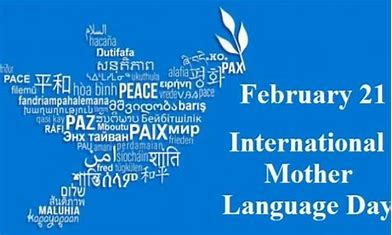At our company, we believe in celebrating the diverse languages and cultures that make up our world. That's why we're excited to join people around the globe in celebrating International Mother Language Day 2023. This special day, observed on February 21st, is an opportunity to honor the many different languages spoken around the world and recognize the importance of linguistic diversity.
The History of International Mother Language Day
International Mother Language Day was first announced by UNESCO (the United Nations Educational, Scientific and Cultural Organization) in 1999, and it has been celebrated every year since then. The day was chosen to honor the Bengali language movement, which took place in 1952 in what is now Bangladesh. At that time, the government of Pakistan declared that Urdu would be the only official language of the country, despite the fact that Bengali was spoken by the majority of the population in East Pakistan. This decision led to protests and eventually to violence, and on February 21, 1952, several students were killed while demonstrating for the right to use their mother tongue, Bengali. The movement ultimately succeeded, and today Bengali is recognized as an official language in both Bangladesh and India.
Why International Mother Language Day Matters
International Mother Language Day is important because it recognizes the vital role that language plays in our lives. Language is not just a means of communication, but it is also an important aspect of our culture and identity. Each language has its own unique history and traditions, and by celebrating linguistic diversity, we can learn more about the world around us and gain a deeper appreciation for different cultures.
In addition, promoting language diversity has important practical implications. Studies have shown that multilingualism can have a range of cognitive and social benefits, including improved problem-solving skills, greater creativity, and better communication across cultures. By valuing and promoting language diversity, we can help create a more inclusive and interconnected world.
How to Celebrate International Mother Language Day
There are many ways to celebrate International Mother Language Day. Here are a few ideas:
Learn a new language: Whether it's through formal classes or self-study, learning a new language is a great way to expand your horizons and gain a deeper appreciation for other cultures.
Attend a cultural event: Many communities hold events to celebrate linguistic diversity. Check your local listings for events such as language festivals, cultural performances, and more.
Read a book in a different language: Reading books in their original language can provide a unique perspective on the culture and history of a country. If you don't speak the language, consider reading a translation.
Share your language: If you speak a language that is not widely spoken in your community, consider sharing it with others. Whether it's through conversation, music, or other forms of expression, sharing your language can help promote linguistic diversity and build bridges across cultures.
Conclusion
At our company, we believe that promoting linguistic diversity is an important part of building a better world. By celebrating International Mother Language Day, we can recognize the importance of language and culture and work to build a more inclusive and interconnected global community. We hope that you will join us in celebrating this special day and help spread the message of linguistic diversity.
FAQ & answer :-
Q:-What is International Mother Language Day?
International Mother Language Day is a worldwide observance held annually on February 21st to promote linguistic and cultural diversity and multilingualism. The day was established by the United Nations Educational, Scientific and Cultural Organization (UNESCO) in 1999 to commemorate the Language Movement in Bangladesh in 1952, where students and activists protested against the imposition of Urdu as the sole official language of East Pakistan. This led to the recognition of Bengali as an official language of Pakistan and eventually, the emergence of Bangladesh as a separate nation.
Q:-Why is International Mother Language Day important?
International Mother Language Day is important because it recognizes the significance of linguistic and cultural diversity in promoting mutual understanding, tolerance, and social cohesion. It celebrates the rich cultural heritage of languages and emphasizes the need to protect and preserve endangered languages. The day highlights the importance of language in education, development, and empowerment and promotes multilingualism as a means of enriching societies and promoting cultural exchange.
Q:-How is International Mother Language Day celebrated?
International Mother Language Day is celebrated in different ways around the world. Many countries organize events, festivals, and seminars to promote linguistic and cultural diversity and raise awareness about the importance of preserving and promoting mother languages. Some communities hold language classes, poetry readings, and cultural shows to showcase their languages and traditions. In Bangladesh, the Shaheed Minar monument is illuminated and people gather to pay tribute to the Language Movement martyrs. UNESCO also releases a message on the occasion, highlighting the importance of linguistic diversity and multilingualism.
Q:-What are the benefits of promoting multilingualism?
Promoting multilingualism has numerous benefits, including:
Enhancing communication and understanding between different cultures and communities.
Preserving and promoting linguistic and cultural diversity and heritage.
Promoting cognitive development, as bilingual and multilingual people have been shown to have better problem-solving and multitasking abilities.
Multilingualism also has practical benefits, such as increasing employability in a globalized world and facilitating international trade and diplomacy.







